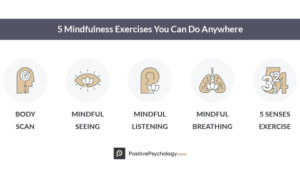First-Time Home Buying Tips: The key to unlocking your dream home without the stress. Ready to dive in?
Looking to buy your first home can be overwhelming, but with the right tips and tricks, you can navigate the process like a pro. From researching properties to negotiating the purchase, we’ve got you covered every step of the way.
Researching Properties

When it comes to finding the perfect property within your budget, research is key. Here are some tips to help you navigate through the process effectively.
Using Online Real Estate Platforms
- Utilize filters to narrow down your search based on price range, location, size, and other preferences.
- Set up alerts to receive notifications for newly listed properties that match your criteria.
- Read reviews and ratings of real estate agents and listings to ensure credibility and reliability.
Importance of Location
Location plays a crucial role in property research as it can impact your quality of life and potential resale value. Consider factors such as proximity to amenities, schools, work, and safety when evaluating different neighborhoods.
Financial Preparation: First-Time Home Buying Tips
Saving for a Down Payment:
When it comes to saving for a down payment on your first home, it’s essential to set a specific goal and create a budget to reach it. Consider cutting back on unnecessary expenses, setting up automatic transfers to a separate savings account, and exploring down payment assistance programs in your area.
Getting Pre-Approved for a Mortgage
To get pre-approved for a mortgage, you’ll need to provide detailed financial information to a lender, such as income, assets, and debts. The lender will review this information to determine how much they are willing to lend you. Being pre-approved can give you a better idea of your budget and make you a more competitive buyer in the housing market.
Comparing Mortgage Options
There are various mortgage options available for first-time home buyers, each with its own advantages and disadvantages. Consider options like FHA loans, VA loans, conventional loans, and USDA loans. Compare interest rates, down payment requirements, and overall terms to find the best fit for your financial situation.
Understanding Hidden Costs
When buying a home, it’s essential to be aware of the hidden costs that can sneak up on you. These additional expenses can add up quickly and impact your overall budget. Let’s dive into some of the common hidden costs to look out for.
Closing Costs
Closing costs are fees paid at the closing of a real estate transaction. These costs typically include loan origination fees, appraisal fees, title insurance, and attorney fees. It’s crucial to factor in closing costs when budgeting for your home purchase, as they can range from 2% to 5% of the home’s purchase price.
Property Taxes and Maintenance, First-Time Home Buying Tips
In addition to the purchase price of the home, you’ll also need to budget for ongoing expenses like property taxes and maintenance. Property taxes can vary depending on the area and size of the property, so it’s essential to research the tax rates in the neighborhood. Additionally, regular maintenance costs, such as repairs, landscaping, and utilities, should be considered in your budget to ensure you can comfortably afford your new home.
Working with Real Estate Agents
When it comes to buying a home, real estate agents play a crucial role in helping you navigate the complex process. They can provide valuable insights, guide you through negotiations, and ultimately help you find your dream home.
Role of a Real Estate Agent
- Assist in finding suitable properties based on your preferences and requirements.
- Negotiate offers and counteroffers on your behalf.
- Provide market expertise and knowledge to help you make informed decisions.
- Handle paperwork and legal aspects of the transaction.
Tips for Selecting a Reliable Agent
- Ask for recommendations from friends or family who have recently bought a home.
- Research online reviews and ratings of potential agents.
- Interview multiple agents to find someone who understands your needs.
- Avoid agents who pressure you into making decisions or seem more interested in their commission than finding you the right home.
Effective Communication with Your Agent
- Be clear about your budget, desired location, and must-have features in a home.
- Communicate any concerns or preferences openly and honestly.
- Ask questions if you don’t understand something or need more information.
- Stay in touch regularly to ensure you are on the same page throughout the home buying process.
Home Inspection and Appraisal
When buying a home, conducting a thorough home inspection and understanding the appraisal process are crucial steps to ensure you are making a sound investment.
Explain the importance of a home inspection before finalizing a purchase.
A home inspection is a comprehensive evaluation of the property’s condition, including the structure, systems, and overall maintenance. It helps identify any potential issues or safety concerns that may not be immediately visible. By getting a home inspection, you can make informed decisions about the property and negotiate repairs or adjustments with the seller before finalizing the purchase.
What to look for during a home inspection
During a home inspection, it is essential to pay attention to various aspects of the property. Some key areas to focus on include:
- Roof condition and age
- Plumbing and electrical systems
- Foundation and structural integrity
- Heating, ventilation, and air conditioning (HVAC) systems
- Appliances and fixtures
- Pest infestations or damage
- Mold or water damage
It is also advisable to accompany the inspector during the process to ask questions and gain a better understanding of the property’s condition.
Discuss the role of an appraisal and its impact on the buying process.
An appraisal is an assessment of the property’s market value conducted by a licensed appraiser. Lenders require an appraisal to ensure that the property is worth the amount being borrowed. The appraisal helps determine the loan amount the lender is willing to provide based on the property’s value. If the appraisal comes in lower than the agreed-upon purchase price, it can impact the financing and potentially lead to renegotiations between the buyer and seller.
Negotiating the Purchase
When it comes to negotiating the purchase of a home, it’s essential to be strategic and prepared. Here are some tips to help you navigate this crucial phase of the home buying process.
Tips for Negotiating the Purchase Price
- Do your research on comparable properties in the area to have a clear understanding of the market value.
- Start with a reasonable offer that is based on the property’s condition, location, and current market trends.
- Be prepared to justify your offer with facts and data to show the seller why you believe it is fair.
- Consider including contingencies in your offer to protect yourself, such as a home inspection or appraisal contingency.
- Don’t be afraid to negotiate back and forth with the seller to reach a price that works for both parties.
Handling Counteroffers
- When faced with a counteroffer, carefully review the terms and consider whether they align with your budget and needs.
- Respond promptly to counteroffers to keep the negotiation process moving forward.
- Be open to compromise but also know your limits and when to walk away if the terms are not favorable.
Knowing When to Walk Away
- If the seller is unwilling to negotiate or meet you halfway, it may be time to consider walking away from the deal.
- Trust your instincts and don’t feel pressured to agree to terms that you are not comfortable with.
- Remember that there are always other properties available, and it’s better to wait for the right one than to settle for a deal that doesn’t meet your expectations.
Moving and Settling In

Moving into a new home can be both exciting and overwhelming. It’s essential to have a checklist in place to ensure a smooth transition and to settle in comfortably into your new neighborhood and community.
Moving Checklist
- Pack essentials first and label boxes clearly for easy unpacking.
- Hire a reputable moving company or enlist the help of friends and family.
- Update your address with the post office, banks, utilities, and other important services.
- Transfer or set up utilities at your new home.
- Change the locks for added security.
Tips for a Smooth Move
- Start packing early to avoid last-minute stress.
- Create a floor plan of your new home to plan furniture placement.
- Keep important documents and valuables with you during the move.
- Take photos of your belongings before packing in case of damage during the move.
Settling into Your New Neighborhood
- Introduce yourself to your neighbors and get to know the community.
- Explore local amenities such as parks, restaurants, and shops.
- Join community events or groups to meet new people.
- Research schools and healthcare facilities in the area if needed.





